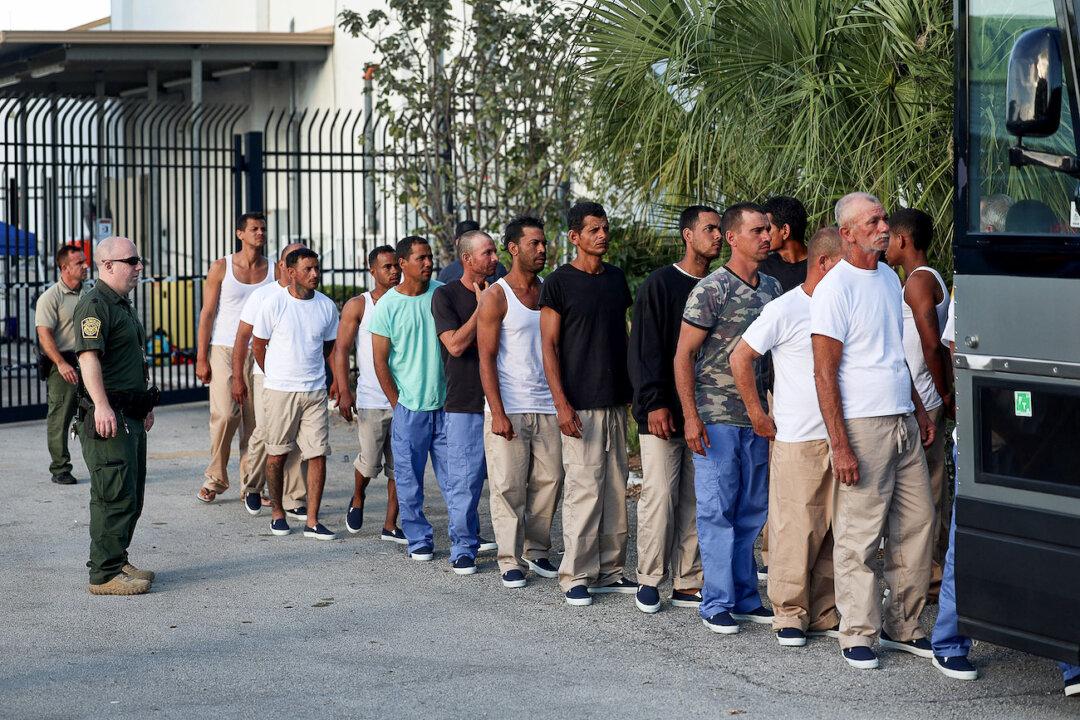A federal judge has temporarily blocked part of a Florida law that criminalizes transporting illegal immigrants into the state.
The challenged law was signed by Florida Gov. Ron DeSantis a year ago, when southern border states were bracing for a flood of illegal immigrants following the scheduled expiration of Title 42, a public health order that allowed border enforcement agents to quickly expel those deemed at risk of bringing in COVID-19.





